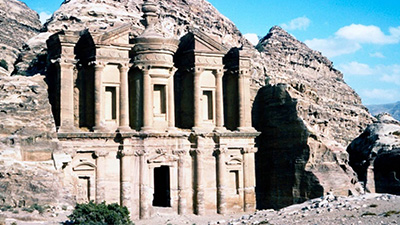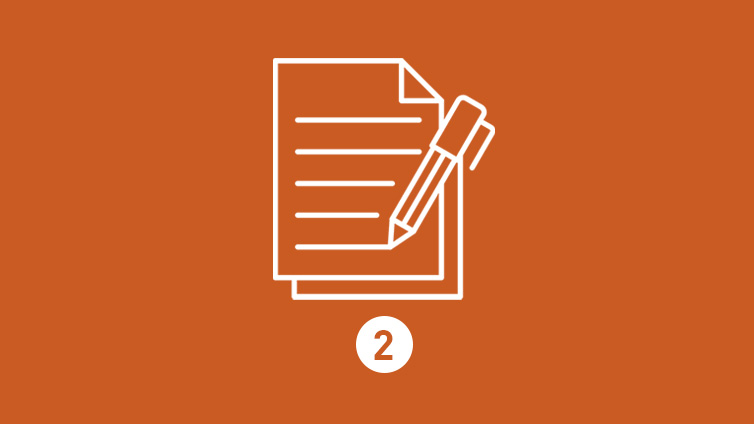The Biggest Mistake Humans Ever Made?
Driving Question: How could the development of agriculture be considered both good and bad for humanity?
Everything changed for humanity once our foraging ancestors began to settle down in early farming communities. Agriculture not only dramatically changed the diets of early humans, but also their communities, lifestyles, networks, and systems of production and distribution—and these changes have had and continue to have massive consequences.
Learning Objectives:
- Learn about differing perspectives for why early humans made the transition from foraging to farming.
- Evaluate why some foraging communities began to farm and how farming led to more-complex societies.
- Use the historical thinking practice of causation to analyze why many early human communities made the switch from foraging to farming.
Vocab Terms:
- agrarian
- causation
- domesticate
- hierarchy
- infectious
- pathogen
- surplus
Opener: The Biggest Mistake Humans Ever Made?
To teach this lesson step, refer to page 2 of the Lesson 2.5 Teaching Guide.
Check out this blog post to find out how causal thinking (and causal maps) helps students make sense of the past and beyond.
Practice creating a causal map for Jack and the Giant Beanstalk to identify cause-and-effect relationships and prepare you to understand the causes and consequences of the Agricultural Revolution.
Causes of Farming
To teach this lesson step, refer to page 3 of the Lesson 2.5 Teaching Guide.
Want to provide your students with feedback on how their causal thinking is developing? Check out the Causation Feedback Form.
The shift to farming was an important change, and not without consequences. In this article and activity, you’ll examine the bumpy road from foraging to farming.
-
Guiding Questions
-
Before you read
Preview the questions below, and then skim the article. Be sure to look at the section headings and any images.
While you read
Look for answers to these questions:
- What is one theory that could show that farming began unintentionally?
- How did the rise of fixed farming communities change what people’s daily work looked like?
- How did the rise of villages both expand and shrink networks?
- What were the benefits and drawbacks of foraging as a system of production and distribution?
- What were the benefits and drawbacks of farming as a system of production and distribution?
After you read
Respond to this question: Given the evidence in this article, would you have preferred to have been a farmer or a forager?
Sell It!
Marketing 201: Agricultural Influencers
- Using evidence and storyboard directions from the Marketing 101 activity, prompt AI to create an advertising poster that takes a side on the foraging vs. farming debate.
- Then, students complete at least three iterations of the poster, refining prompts as they go and improving the final product.
- Wrap-up discussion debrief: Students use AI as a judge of the posters, selecting the ones it deems most convincing. What choices did it make? Does the class agree? How does the AI evaluate claims differently than humans would?
How this helps: Students use art and historical evidence to craft a claim. The process of prompt refining will deepen their understanding of the changes that accompanied the transition to agriculture.
History is filled with choices: isolationism vs. internationalism, modernists vs. traditionalists, war vs. peace. You’ll face a choice of your own in this activity: foraging or farming?
Closer: The Biggest Mistake Humans Ever Made?
To teach this lesson step, refer to page 7 of the Lesson 2.5 Teaching Guide.
Get an idea of how other teachers use Unit Notebooks by checking out this conversation in the OER Project Teacher Community.
Time to revisit your Unit Notebook. What’s new? What’s stayed the same?
Writing: Evaluating the Agricultural Revolution
To teach this lesson step, refer to page 7 of the Lesson 2.5 Teaching Guide.
In this writing activity, you’ll use evidence from sources to support an argument that responds to the question: Was farming an improvement over foraging for early humans?
Agricultural Governments
To teach this lesson step, refer to page 8 of the Lesson 2.5 Teaching Guide.
Historians suggest that the advent of farming led to the creation of states. You’ll examine the seeds of this argument in this video on farming and the state.
-
Guiding Questions
-
Before you watch
Preview the questions below, and then review the transcript.
While you watch
Look for answers to these questions:
- What do Candice Goucher and Laura Mitchell think about the argument that farming was a precondition for the state?
- What evidence do Goucher and Trevor Getz provide as a counterargument to the claim that grain farming, in particular, led to states?
- What does Mitchell say about the connection between labor and the state?
- Given the added labor and tax burden, do Goucher and Mitchell think the state was a good idea?
- According to Goucher, is there still a connection between farming and the state today?
After you watch
Respond to these questions: Do you think some foraging communities could also be called states? What conditions might foragers need in order to develop things like specialization of labor or social hierarchies?






